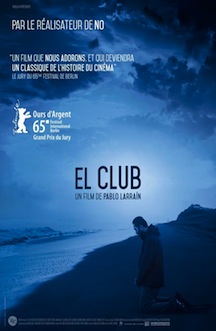Directed by Werner Herzog
Country: USA / Marocco
Shot with formal elegance, “The Queen of the Desert” marks the return of the celebrated German director Werner Herzog to fiction, after six years of documentaries, which include the pictorial “Cave of Forgotten Dreams” and the mandatory “Into the Abyss”.
Set in the early Twentieth century, the film is a biographical drama focused on Gertrud Bell, who drew the attention of the world not only for being a courageous traveler, but also for her work as a writer, archeologist, explorer, cartographer, and political officer for the British Empire.
Ms. Bell, played with the usual graciousness by Nicole Kidman, feels domesticated and shows an adventurer’s spirit since an early stage, begging her father to let her go away to anywhere in the world. Her father decides to send her to Tehran, to live with her immoderate uncle, an important figure of the British embassy in that city. Once there, she falls for the charming Henry Cadogan (James Franco), an Embassy worker designated to be her guardian and entertainer. Henry shares with her the same interest for the Persian Omar Khayyam’s poetry but doesn’t tell her about his gambling addiction and debts. Regardless this detail, the pair is willing to get married, but the plan is never consummated, though. Gertrud’s father doesn’t give his consent, and some time later Henry is found dead.
This was a turning point in the life of Gertrude, who reserving her heart for the desert, embarks in a couple expeditions of her own. Despite disobeying orders, she gains the respect of the British Bureau and the Prime Minister, Winston Churchill, for her ability to establish bilateral relations between countries and their people.
Gertrud soon becomes an important instrument for peace and understanding, categorically refusing to work as a spy for her own country when that possibility was considered. Instead, she got the fondness of the not so accessible tribes such as the Bedouins and the Druze, which referred to her as the ‘noble lady’.
Mr. Herzog schemed all the happenings with a profound relaxation, in a way that we never sensed any danger around, not even when apparently harmful warriors intercepted her caravan in the middle of the desert, or when she was forced to remain three weeks in a remote palace as the new acquisition for the master’s harem.
Gertrud was surely fortunate in many ways, but not in love. The sight of a new, sincere love, soon vanishes again when her suitor, the Lieutenant Colonel "Richard" Doughty-Wylie (Damian Lewis), is killed in war.
Beautifully shot, “Queen of the Desert” doesn’t provide enough thrills. It’s too soft when compared with other movies of the same subgenre (John Curran’s “Tracks” is a good example).
Herzog needed more than two hours to tell a story that could have been told in less than one. Similarly to his fellow countryman director, Wim Wenders, these seem to be difficult times in terms of inspiration for Mr. Herzog, at least out of the documentary circuit.








































